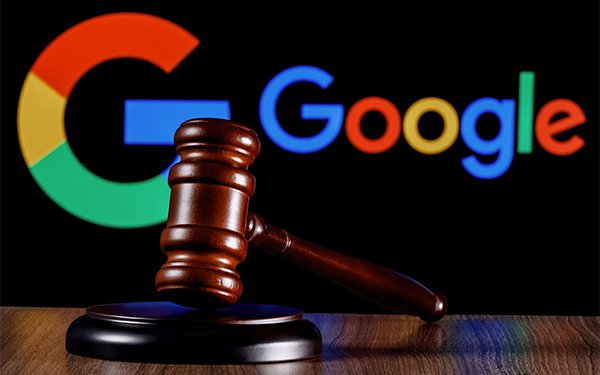
Google is urging a federal judge to scrap a
jury's decision that the tech company should pay $425 million for allegedly collecting analytics data from mobile device users who had attempted to prevent the company from doing so.
In papers filed Wednesday with U.S. District Court Judge Richard Seeborg in San Francisco, Google says the case should not have proceeded as a class-action, arguing that the claims
against it required individualized decisions.
For their part, the plaintiffs on Wednesday urged Seeborg to order Google to disgorge $2.36 billion -- a figure class counsel says
represents profits attributable to the analytics data -- and issue an injunction against the company.
The new round of papers comes in a legal battle over Google Analytics for Firebase -- a tool that can collect data about people's app usage.
advertisement
advertisement
Anibal Rodriguez and
others alleged in a 2020 class-action complaint that Google “intentionally created an illusion of user control” through its “Web & App Activity” settings, which users can
toggle off if they don't want to save searches and activity in their Google account.
Rodriguez and the others alleged that even when users turn off the setting, Google uses its
Firebase code “to collect users’ communications made via the apps on users’ devices."
The matter went to trial this summer, and in September a jury determined that Google was liable for two claims -- "intrusion upon seclusion" and "invasion of privacy" -- and assessed damages at
$425 million.
Seeborg had instructed the jurors that the plaintiffs could establish the "invasion of privacy" claim if they proved that they had an "objectively reasonable"
expectation of privacy, and that Google engaged in "highly offensive" conduct -- which he defined as a "shocking or outrageous breach of social norms regarding online data."
He
issued a similar instruction regarding the "intrusion upon seclusion" claim.
Google is now asking Seeborg to retroactively deny the plaintiffs class-action status and vacate
the jury's liability findings.
"The jury trial in this case confirms why privacy claims are ill-suited for class-wide resolution," Google writes.
"Every element of the
privacy claims advanced by plaintiffs calls for individual -- not common -- inquiry," the company argues, adding: "Plaintiffs failed to provide class-wide, common evidence that each class member
actually maintained a reasonable expectation of privacy."
Among other contentions, Google says that whether users reasonably expected that their data wouldn't be collected, as
well as whether it engaged in "highly offensive" conduct, turns on factors that vary from user to user and app to app.
"Because offensiveness turns on the type of data Google
collects, this then turns on what type of data third-party apps authorized to be collected," Google writes.
Meanwhile, the plaintiffs, in addition to asking Seeborg to order
Google to disgorge profits, are seeking an injunction prohibiting the company from collecting and saving data from users who turned off the Web & App Activity setting, and requiring Google to
delete such data previously collected and destroy any algorithms or services created by using it.
Earlier this year, Seeborg rejected Google's bid to dismiss the matter before trial.
Google had argued that its privacy policy
accurately described the Web and App Activity setting, and that no reasonable smartphone user would have expected the setting to “disable the entire data flow from the app to Google.”
Seeborg rejected that argument, writing that Google's disclosures about the Web and App Activity setting were ambiguous.
Google also contended that the
analytics data was “non-personal,” and that its privacy policies disclosed that the company could use “non-personal information for basic record-keeping.”
But Seeborg said that even pseudonymous information can be considered personal information in California, noting that the state's privacy statute defines personal information as data
that could be linked to a consumer, household, IP address or other unique identifier.